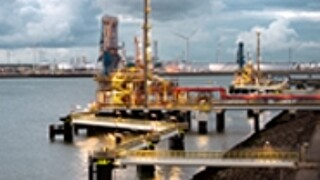With the emphasis on what happens to society and economic growth, there’s little in the headlines about the effect of the pandemic on the environment. But it doesn’t have to be this way.
Of course, there is huge damage to economies and societies all over the world, with deteriorating health, reduced income and job losses. But by contrast, environmental performance is improving because carbon emissions and usage of raw materials declines because of reduced production and transport during the COVID-19 lockdowns. Nevertheless, the pre-crisis levels of environmental degradation are likely to return when the lockdowns are lifted and economic growth resumes.
Governments, in particular those included in the European Commission’s Green Deal, have been working on the energy transition and the creation of a circular economy in the medium term. By attaching green conditions when granting state aid and guarantees during the COVID-19 crisis, governments could push companies to accelerate the adoption of low-carbon and circular technologies after the crisis is over, and thus aim for a green recovery. It’s already known that economically and environmentally viable companies carry a lower credit risk.
The European Commission (2020a) has temporarily lifted rules for the control of state aid to ensure that the disruptions caused by the COVID-19 pandemic do not undermine companies’ economic viability. State aid can take the form of wage subsidies, tax and social contributions relief, financial support, and loans and guarantees via banks. By limiting unnecessary company failures and job losses, the Commission aims, rightly, for a swift economic recovery after the pandemic. Meanwhile, several countries have pledged large state aid packages to steer companies through the crisis.
Green state aid
Both economic and environmental viability are important for companies’ survival in the long run. Sustainable conditions for companies that receive state aid will change their business models. It will also affect market outcomes. To allow the smooth functioning of the internal market, The Erasmus Centre for Sustainable Value Creation (ECSVC) therefore suggests that the Commission designs and monitors sustainable conditions as part of their temporary framework for state aid measures during the pandemic.
These conditions can be based on the Green Deal targets to reduce carbon emissions in 2030 by at least 50 per cent and in 2050 by 100 per cent (ie carbon neutrality), compared with 1990 (European Commission, 2019). In addition, new targets are set for the design of sustainable products and circular production processes to reduce the use of virgin materials in the new Circular Economy Action Plan (European Commission, 2020b). When granting state aid, governments should require companies to implement these reduction targets for carbon emissions and use of materials in their business models after the crisis. In this way, state aid expenditures will not only promote the economic viability of companies, but also their environmental viability. This will accelerate the adoption of low-carbon and circular technologies.
Prompt state aid
Companies are struggling for survival right now and need to receive the state aid quickly. To reduce the upfront administrative burden, governments can choose to apply a simple sustainability test for granting state aid, combined with a tougher test ex post. If a company breaches the agreed conditions, the state aid would have to be partly or fully repaid, depending on the severity of the breach. We also propose that these conditions target key sectors that are carbon- and material-intensive to keep bureaucracy to a minimum.
These are the sectors that have relatively high carbon and material footprints (Schoenmaker and Schramade, 2019):
- Transportation: road, air and water transport are predominantly powered by fossil fuels;
- Manufacturing: many manufacturers still employ energy- and material-intensive technologies;
- Construction: many buildings under construction are being built using non-recyclable and energy-intensive materials such as cement;
- Energy: the shift from fossil fuels to renewable energy is still very gradual.
Example 1: GM and EVs
Support for the American car industry during the global financial crisis of 2007 was conditional on sustainable progress. In 2009, President Obama granted large sums of state aid to General Motors on the condition that the company accelerated the development of its electric vehicles (EVs). General Motors now has EVs – cars and commercial vehicles – in its range.
Example 2: Carbon-neutral trips
The airline and travel industries are severely affected; as a condition of state aid they could be requested to speed up investment in carbon-efficient aircraft after the crisis, while airline manufacturers could be requested to speed up the development of carbon-efficient and carbon-neutral aircraft. Travel companies, such as TUI, which received €1.8 billion in state aid from Germany, could be asked to reduce their carbon footprints by 50 per cent by 2030. Travel companies could achieve such a reduction by offering clients more carbon-efficient air travel and by encouraging more travel by train.
Example 3: Loans conditional on sustainability
Banks can set similar conditions for sustainability when giving loans to companies in these sectors (with or without public guarantee) during the crisis. The underlying arguments are the same: economically and environmentally viable companies carry a lower credit risk. Leading banks already have experience of applying sustainability criteria to lending (Schoenmaker and Schramade, 2019).
Change the system
Some high-carbon companies and sectors might find it difficult to adapt to the new low-carbon and circular environment. The situation of these companies and the sectors using fossil fuels are reminiscent of the European textile and shipping sectors in the 1990s. State aid received by companies in textiles and shipping only delayed their disappearance. To avoid repeating these mistakes, governments should not provide state aid or guarantees to sectors that are economically or environmentally not viable in the medium term.
In these cases, governments must use their resources to retrain workers. While the kneejerk reaction of governments is often to help the business that is in trouble and/or to protect the jobs involved, it is better to focus on helping the people – retraining and finding new employment – and changing the system. The Danish labour market, for example, is known for its high level of flexibility for hiring, in its social welfare system and for its active employment policies. Together, these three components constitute what is known as the ‘Flexicurity Model’ (Jespersen et al, 2008).
There is also a direct role for governments in sectors that rely heavily on public investment and/or planning procedures, including the energy, transport and building sectors. Birol (2020) proposed to speed up the energy transition by putting clean energy jobs at the heart of stimulus packages. Other opportunities would be to expand public transit systems – including a European network of high-speed trains – and stimulating circular construction practices, which also require newly trained workers. Retraining efforts can also be partly directed to these areas.
After the global financial crisis of 2007, several countries speeded up recovery by shortening planning procedures so that large building and infrastructure projects could advance. Accordingly, governments can now speed up the planning and execution of renewable energy projects such as power generation and distribution, as well as public transport projects that could replace road and air travel, and construction projects with a circular business model.
Four recommendations
Governments are rightly compiling state aid packages to promote a swift recovery after the COVID-19 pandemic is ended. Our four recommendations to foster a green recovery are:
- Apply sustainable conditions to state aid for companies in sectors with high carbon and/or material footprints;
- Apply similar conditions to new and extended bank loans (with or without public guarantees) to these sectors;
- Refuse state aid for companies and sectors that are not able or willing to adopt low-carbon and circular technologies, nor to retrain their workers for new employment;
- Speed up planning procedures for renewable energy, public transit and circular building projects and infrastructures.
References
Birol, F. (2020), ‘How to make the economic recovery from coronavirus an environmentally sustainable one’, Prospect, 24 March.
Obama, B. (2009), ‘Remarks by the President on the American Automotive Industry’, Transcript of Press Conference, 30 March, Washington DC
Schoenmaker, D. and W. Schramade (2019), Principles of Sustainable Finance, Oxford University Press, Oxford (available as a free download)
Schoenmaker, D. (2020), ‘The Caring Economy: Balancing Profit an Impact’, Working Paper, forthcoming.

